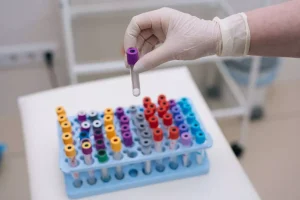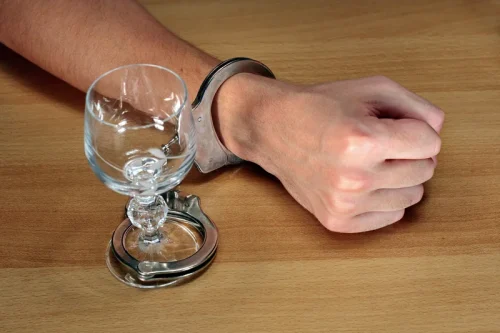How Does Alcohol Affect Your Mental Health?

In fact, research from 2019 has shown that alcohol behavioral couple therapy can help participants drink less, decrease conflict, and increase communication between partners. If you’ve noticed that you’re only doing activities with your partner that involve alcohol, try to find other ways to spend time together without how does alcohol affect relationships drinking. The survey results showed that people in committed relationships who use alcohol during intimacy were more likely to be sexually aggressive toward their intimate partners. But there are ways you can recognize when alcohol might be negatively affecting your relationships — and when it may be time to get help.
- But after a few drinks, you’re the one pulling friends out onto the dance floor to join you.
- If you feel the need to be dishonest about your drinking, you may want to ask yourself why.
- Research indicates that 92% of victims of domestic violence reported that the assailant had used alcohol or other drugs on the day of the assault.
- Talk to a GP or your local community alcohol service who will be able to get help for you to reduce your drinking safely.
- If replicated, interventions may profitably target social reward as a mechanism underlying the development of problematic drinking in young adults.
- These increased alcohol use behaviors may elicit greater frequencies or intensities of negative interactions with one’s partner, as well as make one more vulnerable to engaging in relationship-damaging behaviors, such as physical violence and verbal aggression (Marshal, 2003).
7. Social-attribution

Results showed that in dating or marriage, your romantic partner does have a small yet meaningful impact on your alcohol use. There are lots of ways to help prevent unhealthy drinking patterns forming in your relationship. This is a self-assessment that is a quick and easy way to see if you or your partner might be drinking too much.

action: ‘healthbeat’
This can lead to reduced intimacy and a disconnect in the relationship as a whole. When you’re in a relationship with someone who drinks too much, their behavior can be hard to cope with. And when you’re the one with a drinking problem, it can be tough to recognize the harm you’re causing and make a change. Most of us find it hard to know how much we’re drinking but there are plenty of free tools that can help. The MyDrinkaware app can help you and your partner to keep track of your units as well as all your achievements.
- And that’s on top of the toll that alcohol use can take on relationships, not to mention the potential for financial strain and legal troubles.
- For this reason, it can be difficult to understand if and when your drinking has become unhealthy, especially if alcohol has played a role in your relationship for a long time.
- A friend or partner may constantly hear reasons for being late, disappearing or mood swings.
- Findings provided initial support for a moderating effect of the DRD4 polymorphism on the link between alcohol consumption and social bonding.
- Alcohol use disorder is a complex condition that can wreak havoc on relationships.
More on Substance Abuse and Addiction

Along with inadequate sample sizes, insensitive measures of personality, and questionable methods for studying alcohol’s acute effects (see Sher & Wood, 2005), the absence of a social context in some of these studies may have contributed to these findings. We often think about how drinking can affect our romantic relationships, but may not consider how it affects our friends and family. However, if a parent struggles with alcohol use disorder, it can cause instability in the household, and harm parent-children bonds. The Adverse Childhood Experiences Study shows that children of parents with a substance use disorder are more likely to experience physical and mental health problems throughout their life. For instance, although he concluded that alcohol usually will reduce tension, he also acknowledged that in some cases alcohol might increase tension—in circumstances where “restraining tendencies are initially so great that a person never comes close enough to … be aroused” (p. 303). Certainly subsequent research has continued to point to complex relations between alcohol and emotion.
When alcohol dependence eventually becomes one of the main reasons for fighting or arguing, the conflict leads to more substance use as a way of reducing tension, conflict about the substance use escalates; thus more drinking occurs, and so on. Couples where one partner abuses alcohol has a very tough time getting breaking free from this downward spiral – however, all is not necessarily lost. There are many proven ways to combat this cycle of abuse – allowing the abuser and their relationship to recover. Couples where a partner abuses alcohol are often very unhappy – in fact, they are usually unhappier than couples that seek marriage guidance for other reasons. As the alcohol abuse worsens, it starts to take more and more time away from the couple – taking its toll by creating an emotional distance between them that is difficult to overcome.
- If you’re trying to take control of your relationship with alcohol, it’s important to take a step back and look at your relationship with your romantic partner.
- Long-term alcohol use can change your brain’s wiring in much more significant ways.
- For example, if you’ve forgotten important dates due to drinking or canceled plans from a severe hangover, your drinking may be causing relationship problems.
- Participants completed all measures through an online survey website that uses encryption to ensure confidentiality of responses.
Alcohol use was thought to be reinforced differentially according to the circumstances surrounding consumption, which was a departure from prior TRT formulations that targeted more narrowly the pharmacological properties of ethanol. Wilson (1978; 1988b) argued that alcohol abuse was largely governed by the same principles https://ecosoberhouse.com/ that regulated non-pathological behavior. Indeed, in many respects social drinking participants offer cleaner tests of the effects of alcohol than do alcohol dependent participants, as the latter individuals often present with a range of social, medical (including psychiatric), and economic complications.
- The Providence Health Team brings together caregivers from diverse backgrounds to bring you clinically-sound, data-driven advice to help you live your happiest and healthiest selves.
- Further, the caregiver grows accustomed to a relationship with the person misusing alcohol that is primarily based on caregiving.
- These groups allow members to speak in a safe environment about the impact alcohol has on their lives.

